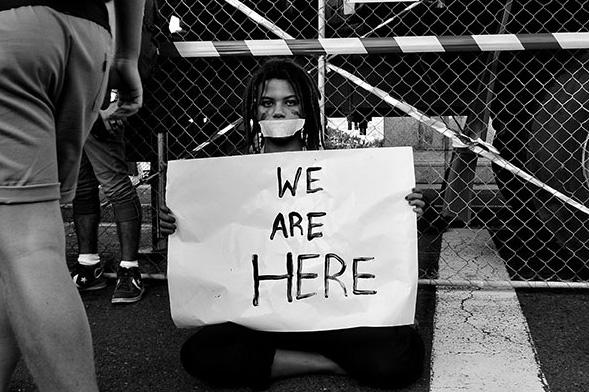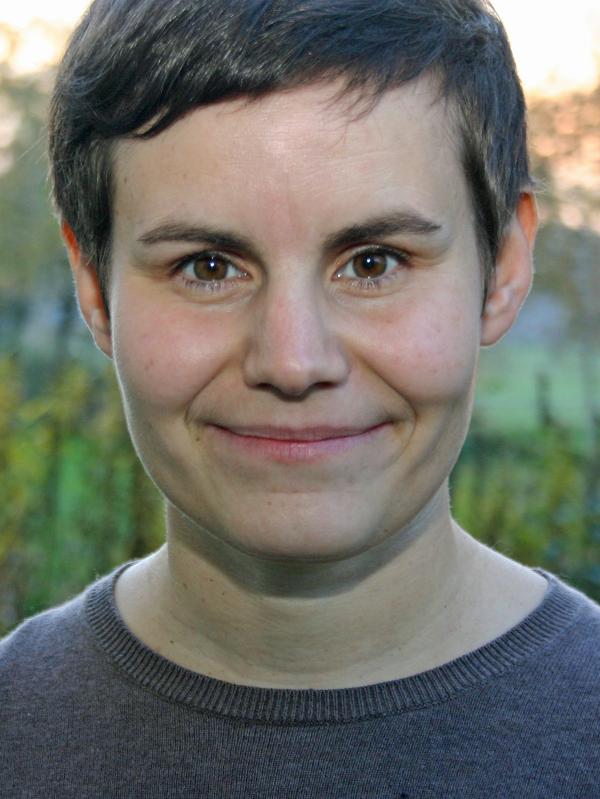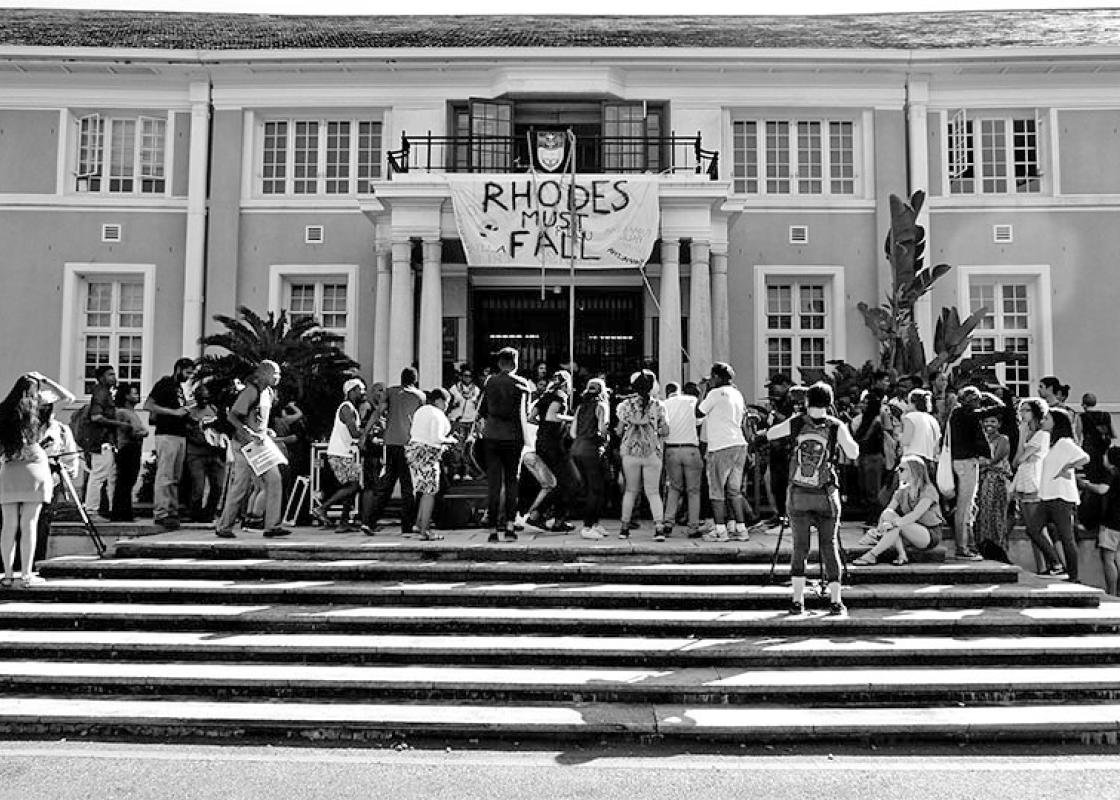Who decides what is correct knowledge about the world? If you find yourself at a Norwegian university, you will see that most buildings are named after significant professors and that the pictures on the walls portray central scientists. Common for most of them is that they are white, dead men.
So where are the women, the indigenous people and the ethnic minorities? Have they not contributed to the development of research and science? These are questions that students and academics have started to ask themselves and their university leaders, and they demand change.
Internationally, we have seen demonstrations and petitions under headlines such as Why is My Curriculum White?, Decolonising Education and, in South Africa: Rhodes must fall. The protests have demanded that the academic contents of the university degree programmes mirror the diversity of the population and not only convey white men’s contributions. They demand the decolonization of academia.
Legacy from colonial times
“It is time to start a conversation about the legacy of colonialism in Norwegian academia,” says Cindy Horst.
She is research director at The Peace Research Institute Oslo (PRIO), which in June this year organised the seminar Decolonising the Academy.
“We need to ask questions about how knowledge is produced. What kind of knowledge forms part of research and teaching? And we also need to think about infrastructure: Who gets to participate? What kind of research becomes central and what is marginalised? This is not only about justice, we are also missing out on important perspectives,” she emphasises.
Education served two functions: To humanise and develop some individuals and groups and to exclude others.
Meera Sabaratnam is a lecturer at SOAS – School of Oriental and African Studies in London. She explains how colonial history is an integrated part of the growth of both science and the universities.
“Modernity in itself is closely tied to colonialism. The industrial revolution was dependent on the colonies, which took place parallel to the Age of Enlightenment and the development of the educational system,” she explains.
“Education served two functions: To humanise and develop some individuals and groups and to exclude others. The colonial scientists spent time categorising the citizens of the world into colonisers and the colonised. This is closely related to ideas about race and a way to arrange the world hierarchically.”
Western ideas dominate
According to Sabaratnam, there are several traces from colonial times in both the humanities and the social sciences.
“There’s the idea of the west as the prime subject. The west has developed academic disciplines by studying its own culture. An example is literary studies, where English literature became the standard against which all other literature was measured. There has been little interest in knowledge produced elsewhere, and when the culture and society of ‘the other’ becomes a topic for research, it is first and foremost understood as a deviation from the western standard.”
She points to development studies as particularly problematic.
“The whole idea of development is based upon the notion that some are developed whereas others are not. This is inspired by an explicit racial thinking, in which some people are assumed to be more advanced than others.”
The fact that ideas originating in the northern and western parts of the world have been allowed to dominate academia is clearly reflected in how the sector is structured, according to Sabaratnam.
“It is prestigious to work with ideas that build upon established notions and models.”
According to her, this is also visible from who studies and works at the academic institutions.
“It is more difficult for both women and racial minorities to make it in academia. We need to ask ourselves why this is the case.”
Story continues below image.

Need to be open to whiteness criticism
According to Sabaratnam, the solution to today’s problem is to decolonise academia. But how?
“We need to reverse the idea that people in the north do research and develop theory, whereas the people from the south are the ones who are being researched. In order to do that, we need to establish real collaboration concerning the production of knowledge. Maybe it demands that western researchers yield their way to others,” she says.
Not least, she thinks that the institutions should examine their own curricula. All those who teach are responsible for making sure that the students not only read texts written by white, western men.
Consider the minority students – what will you say to them if there is only literature by white men on the reading list?
“Saying that this has been forced down on them by the management is not good enough. Consider the minority students – what will you say to them if there is only literature by white men on the reading list? We need to show that everybody belongs in academia, for instance by having literature written by scholars with ethnic minority backgrounds on the reading lists.”
Whiteness criticism is a term that has gained foothold within both gender research and other critical disciplines during the past thirty years. According to Sabaratnam, this type of criticism is essential for decolonising academia.
“We cannot use as a starting point that whiteness is the standard, whereas everything else differs from this norm. It is important to be open to self-criticism and whiteness criticism in order to make visible the privileges of being white.”
Decolonise gender studies
Stine Helena Bang Svendsen is a gender researcher and associate professor at Department of Teacher Education at Norwegian University of Science and Technology (NTNU). She points out that despite the fact that colonialism and racism are abstract, theoretical terms, they should be understood locally and concretely.

“We must be careful not to do what social anthropologist Marianne Gullestad called ‘to externalise’ racism. In Norway, we may believe that racism is something that happens to others elsewhere, but that is not the case. Some people consider anti-racism to be imported from the U.S. or from South Africa or other countries with a known racist history. But it is a mistake to believe that some countries or societies are exempt from this,” she says.
She has seen that some disciplines have taken the idea of decolonisation to heart. For instance, indigenous studies have made room for Sami methodology and epistemology. Gender research, a field that is strongly influenced by postcolonial theory, still has a lot to learn.
“When Norwegian researchers tell the story about the development of the Norwegian feminist movement, the bourgeois feminism is described in detail, but the Sami feminist movements have been forgotten. This contributes to a construction of feminism as something western and Norwegian.”
There are traces of colonialism also within gender studies.
“The growth of the feminist movement is an important part of the history of gender studies. The fact that the organisation of Sami women was excluded from the Norwegian feminist movement demonstrates that there are traces of colonialism also within gender studies.”
We do not normally think of Norway as a colonial power, but Norwegians took an active part in the colonial rule of the Danish West Indies when we were under Denmark in the 17 and 1800s. More importantly, the Norwegian domination of the Sami population and their territories is a Norwegian colonial history in itself. According to Bang Svendsen, this should be better emphasised in Norwegian universities.
“The colonial ignorance is most obvious when it comes to the Sami population in Norway. There is, for instance, far too little focus on South Sami life and culture at NTNU, despite the fact that the university’s largest campus is placed within the South Sami territory Trondheim.”
Non-western criticism of gender research
Bang Svendsen also thinks that the colonial legacy is part of something more fundamental within the field of gender studies.
“The coloniality lies within the very core of the discipline.”
She elaborates:
“More concretely, I think that as gender researchers we should investigate the term ‘gender’ itself.”
She points to Maria Lugones, who in her work The coloniality of gender criticises the term ‘gender’ for being colonial and for originating in a bourgeois, western, white culture.
“We should let our students read non-western criticism of gender research. Oyeronke Oyewumi is already on the reading lists, but Lugones’ criticism should also be included.”
Oyewumi became known for her post-colonial criticism of western science, particularly science relating to Africa. She offers an African perspective on feminism and gender, and thus demonstrates how the discipline has been constructed within a western framework of understanding.
“Gender is a colonial concept. We have to realise the cultural specificity in our understanding of gender,” Bang Svendsen explains.
As a teacher, she finds this particularly important.
“I think this may explain some of the conflicts we experience in the class room. Why do discussions on gender become problematic for diversely racialised students? Perhaps it has to do with our different basic understandings of gender.”
Translated by Cathinka Dahl Hambro.
Read more about Stine Helena Bang Svendsen's research: Norwegian schools reproduce racism and gender stereotypes



